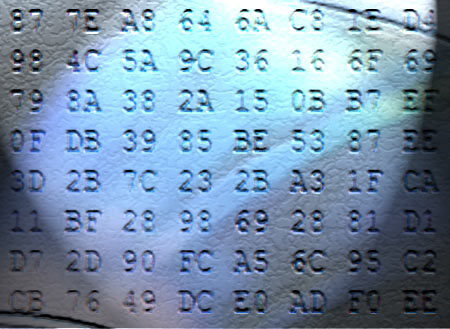Hackers Can Track Your Cellphone Without Your Knowledge
Vulnerabilities in smartphones have become a common portion of our daily news life.

We may not address security concerns as quickly as operating system or browser vulnerabilities, but there is no doubt that we should be paying more attention to our phones. Researchers at the University of Minnesota have discovered that it is fairly easy to track a user's location based on the data exchange between a phone and a GSM cell tower.
The tracking of a user happens via data packets that are typically sent to a phone to help a cell tower to locate a phone and allocate the appropriate resources to support a call. Such packets are also sent to tell the phone that someone is calling it. The researchers found that they could force cell towers to send the data and hang up, before the recipient's phone rings. However, by then, the location data is already available. Apparently, there is no need for support from a cellular provider and open source software running on "commodity" platforms will give hackers or anyone else who wants to track cell phone user location access to exploit the vulnerability.
"Cell phone towers have to track cell phone subscribers to provide service efficiently," Denis Foo Kune, Ph.D. student at the University of Minnesota, explained. "For example, an incoming voice call requires the network to locate that device so it can allocate the appropriate resources to handle the call. Your cell phone network has to at least loosely track your phone within large regions in order to make it easy to find it."
According to the findings, the location data is rough, and an individual's location could only be determined within a 10-block radius. However, for some purposes, 10-blocks may be good enough.
Get instant access to breaking news, the hottest reviews, great deals and helpful tips.
Douglas Perry is an author and journalist from Portland, Oregon. His many articles have appeared in the likes of Tom's Guide, Tom's Hardware, The Oregonian, and several newspapers. He has covered topics including security, hardware, and cars, and has written five books. In his spare time, he enjoys watching The Sopranos.
-
if this happening 10 years ago. I will be like.Reply
what? how? why?
but now is at 2012.........I will just be like.
ok. whatever. things happen. so. I dont give a f
-
intelx like this is something new, carriers, google, ICQ, FBI dose all that already without your knowledge.Reply -
mitch074 The G20 in Cannes (France) was recently saved by a Lebanese restaurant owner who found a secret file (detailing the fifth floor of the Carlton hotel where Obama was staying, escape routes, staff appointments, schedules...) forgotten by a FBI agent who had come to buy a sandwich.Reply
The owner contacted the FBI (in the US) with his cell phone and read the file's first page to an incredulous phone operator who told him "Don't move - we're coming" and then hung up without waiting for an address. Five minutes later, two agents entered the restaurant and took the file.
Yes, they had tracked the call to the restaurant owner's cell phone - in France, thus outside the FBI's jurisdiction. Did they have a temporary authorisation from the French police force? Or did they simply ask their staff "ok you losers, who lost his file? A restaurant owner found it." "Oh shit, that's me!". This article hints at the former. -
aznguy0028 damn it, now they know that the only person I'm calling is my mom! :forever alone: hahaReply -
davidgermain How long is a block? 1Mile x 1Mile 1AU x 1AU. come on ppl use mile KM Meters some sort of real distance?Reply -
davidgermain dont most have location services turned on by default so all this clever stuff with tech and code and hacks, just friend them on facebook. oh look there you are.....Reply -
d-isdumb davidgermainOh add this to tracking root kit on lots of phones, and tracking should be easy.Carrier IQ which belongs to the FEDS.Reply
